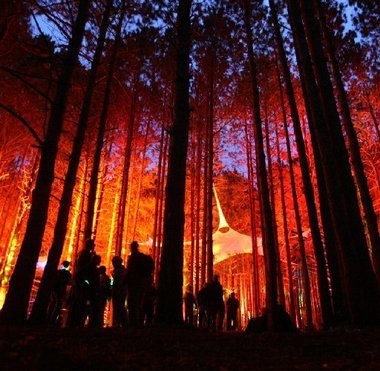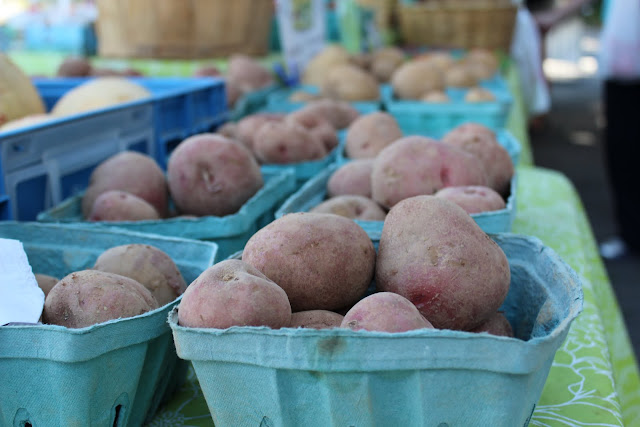thursday afternoon i was one of the many attendees of ut's make orange green kickoff. the event featured many local and national companies, organizations, and programs that are working harder to promote sustainability and put those ideas into practice.
i mostly explored the farmer's markets, ut bike store, and the free ice cream (how could i resist?). but it was encouraging to see that ut is so serious about making changes and implementing programs in order to become a more sustainable campus. it was important as well as meaningful to have the chancellor speak at an event like this as well.
there were fully electric vehicles on display from various manufacturers such as mitsubishi, nissan, and chevrolet. i really liked seeing the mix of local businesses side by side with major companies and governmental programs such as tva and kat.
here are some shots from the market square farmer's market simply because i love the farmer's market. i think there's something really important about relying on local resources for sustenance, and supporting them appropriately. i haven't been yet, but i am very excited about the ut farmer's market, every wednesday from 4-7 pm in the ut gardens, until october 26.
overall i felt the event was a successful step in the right direction for ut's sustainability as a campus as it was well-organized, very informative, and convenient for many of ut's students.
and let's be real. that cruze ice cream is so good. i hope you guys got some.
24.9.11
22.9.11
morningstar fishermen
you've heard the saying: "give a man a fish and he'll eat for a day, but teach a man to fish and he'll eat for a lifetime." morningstar fishermen are a group specializing in aquaponic research and training that essentially teaches people how to raise their own fish and vegetables in areas suffering from food shortages or unusable or fallow land.
as of now, the group has worked in nicaragua, haiti, and malawi and is wanting to expand their research and training programs. they specialize in sustainable aquaculture and hydroponics (therefore it is called aquaponics) and their primary research and training facility is located in dade city, fl.
this is a very important project in that it encourages not only sustainable living but addresses a prevalent problem in many struggling countries--lack of food and resources to produce that food due to climate change and/or a failing economy. although the aquaponic industry is still young, i feel that this is a promising solution to issues relating to global economies, food supply and climate.
as of now, the group has worked in nicaragua, haiti, and malawi and is wanting to expand their research and training programs. they specialize in sustainable aquaculture and hydroponics (therefore it is called aquaponics) and their primary research and training facility is located in dade city, fl.
this is a very important project in that it encourages not only sustainable living but addresses a prevalent problem in many struggling countries--lack of food and resources to produce that food due to climate change and/or a failing economy. although the aquaponic industry is still young, i feel that this is a promising solution to issues relating to global economies, food supply and climate.
18.9.11
seatbelt style
this week my roommate came home after attending a focus group for the company maggie bags, who make a sustainable tote bag made of recycled seat belts. i realize this isn't the most riveting subject matter...but i needed a post, and this seemed to be apropos.
the bags come in a variety of styles i.e. messenger, handbag, bucket tote, or backpack and are durable as well as eco-friendly. an interesting detail my roommate informed me that relates to anyone who associates themselves with UT: the US postal service recently ordered a large number of orange seatbelts but were dissatisfied with the color and decided not to use them (how wasteful is that?). now the company has decided to use this would-be waste product to make a line of UT-inspired bags.
maggie bags repurposes millions of yards of seatbelt fabric each year, after they are rejected by various auto makers for color variation or other "imperfections" to make practical, affordable and durable bags. i think it is extremely important for growing companies (and all companies) to practice policies that divert and prevent perfectly usable materials from going to landfills as well as utilizing resources to their fullest potential as opposed to wasting and abusing a surplus of man-made materials.
 |
| the maggie bags "tote of many colors" |
maggie bags repurposes millions of yards of seatbelt fabric each year, after they are rejected by various auto makers for color variation or other "imperfections" to make practical, affordable and durable bags. i think it is extremely important for growing companies (and all companies) to practice policies that divert and prevent perfectly usable materials from going to landfills as well as utilizing resources to their fullest potential as opposed to wasting and abusing a surplus of man-made materials.
16.9.11
strides toward sustainable farming
i stumbled upon an interesting development in the sustainable farming community yesterday. in the past year, a church out in smyrna, tn has partnered with the refugee community in surrounding areas (specifically those from myanmar/burma) to build and maintain a sustainable farm on the church's property.
i am a huge fan of this for a few reasons:
1) sustainable farming--the farm produces crops native to myanmar as well as chile peppers and other vegetables. the refugees receive 10% of the produce and the rest is sold locally or given to food pantries. in my opinion, this is a win-win-win situation.
2) integration of the refugee community--what better way to exchange knowledge and foster a community spirit (that is integral to encouraging sustainable living) than working towards a common goal? these refugees were farmers in myanmar before coming to the US, and they have valuable knowledge of working the land that many americans can benefit from in order to lead more "green" lives
3) steps toward self-reliance and sustainability-- the burmese refugees also grow pumpkins, and they eat everything including the stalk which they strip and then cook. learning new ways to prepare food is a step towards self-reliance which is an important part of sustainable as well as healthy living.
just thought this was interesting! these last three pictures were taken by my parents who went out to the farm last saturday.
i am a huge fan of this for a few reasons:
1) sustainable farming--the farm produces crops native to myanmar as well as chile peppers and other vegetables. the refugees receive 10% of the produce and the rest is sold locally or given to food pantries. in my opinion, this is a win-win-win situation.
2) integration of the refugee community--what better way to exchange knowledge and foster a community spirit (that is integral to encouraging sustainable living) than working towards a common goal? these refugees were farmers in myanmar before coming to the US, and they have valuable knowledge of working the land that many americans can benefit from in order to lead more "green" lives
3) steps toward self-reliance and sustainability-- the burmese refugees also grow pumpkins, and they eat everything including the stalk which they strip and then cook. learning new ways to prepare food is a step towards self-reliance which is an important part of sustainable as well as healthy living.
 |
| okra in the community garden |
 |
| chili peppers, which the burmese typically grind up into a sauce |
 |
| magenta zinnias, for looking |
12.9.11
"a southerner talks music"
for this next post, i decided to do a little research/reading up on sustainable music festivals. seeing as music is one of my favorite aspects of culture and society, i was curious about the lengths various music festivals are able to go in order to provide an equally eco-friendly and mind-blowing musical experience.
 |
| glastonbury 2010 |
the most helpful and informative document i was able to find was this guide to sustainable music festivals as an organizer, artist, attendee, or participant in any manner.
 |
| electric forest at rothbury, mi |
the guidebook goes on to detail efficient use of energy, volunteer workers, garbage-free production, and encouraging a wholly sustainable society. one of the reasons this document is helpful is it evaluates each process of the festival and rates the challenges and expenses required to complete a certain stage. i'm not entirely sure how applicable this is to everyone's daily life, but i thought it dealt with quite a necessary and present issue in the United States as well as across the world.
7.9.11
back to the start
don't know if y'all have seen chipotle's latest creative endeavor, but i do know that i'll gladly support any conglomeration of pedal steel guitar, burritos, sustainability, and willie nelson.
this animated short film provides an interesting and quite relevant commentary. the work brings up the notion of going "back to the start" via sustainable farming as well as other practices i.e. supporting local business and utilizing resources wisely. as a corporation, chipotle is one that is (as far as corporations go) pretty great at advocating for sustainable living.
interestingly and slightly unrelated, though, i stumbled upon this story recently about the discovery that their pinto beans are cooked with bacon, and this fact is not broadcast. this poses a problem for vegetarian, vegan and religious folk alike. i'm not exactly sure whether or not i have any particular feelings toward the "issue," other than i think companies should practice honest advertising (honesty in general?) as much as possible (is there even such a thing as honest advertising?).
either way, i support chipotle's choice to bring awareness to the importance of sustainable practices, even if they have failed in the past to bring awareness to the bacon-y secret to delicious pinto beans.
5.9.11
haven on earth
i was recently enlightened about the earthaven ecovillage outside asheville, nc. formed in 1995, the community strives to achieve an entirely sustainable and holistic existence.
the ecovillage is fairly controversial, however, even within its borders. practices of sustainability can venture one of two ways: a reversion to a simpler way of life, or an embrace of progressing technology in sustainable living. Even though many members of earthaven disagree on the best way to put sustainability into practice, the community manages to function"off the grid"with self-sustaining power, water, and sewer systems. They are connected to the outside world via telephone.
earthaven holds classes as well as other events to educate the general public on the feasibility of sustainable living, to bring in revenue, and also for entertainment and enjoyment.
my initial reactions from reading about earthaven were positive, but i realized that in comparison to the level of comfort most people, particularly in the US experience daily, the earthaven way of life would be considered an utterly radical change, and utilizing technology in order to find more "socially plausible" ways to integrate sustainable living would not only be a positive use of time, but could also potentially be easier to adapt to for large groups of people.
earthaven holds classes as well as other events to educate the general public on the feasibility of sustainable living, to bring in revenue, and also for entertainment and enjoyment.
my initial reactions from reading about earthaven were positive, but i realized that in comparison to the level of comfort most people, particularly in the US experience daily, the earthaven way of life would be considered an utterly radical change, and utilizing technology in order to find more "socially plausible" ways to integrate sustainable living would not only be a positive use of time, but could also potentially be easier to adapt to for large groups of people.
Subscribe to:
Posts (Atom)










